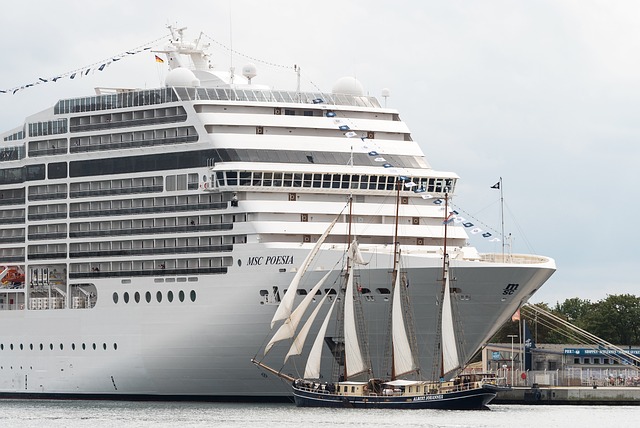Exploring Life and Work Aboard Modern Cruise Ships Around the World
Cruise ships are more than just vacation vessels—they’re floating workplaces that rely on a wide range of skilled staff to operate smoothly. From hospitality and maintenance to logistics and entertainment, each role plays a part in supporting long voyages across international waters. This article takes a closer look at what life aboard a cruise ship is like, how responsibilities are organized, and what some professionals consider when exploring this unique environment.

What does a typical day look like for cruise ship crew members?
Life on a cruise ship follows a rhythm dictated by the ship’s itinerary and passenger needs. Crew members typically work long hours, often seven days a week, for the duration of their contract, which can last several months. A typical day might start early, with housekeeping staff preparing guest areas before passengers wake. Food service crews begin their shifts in the early hours, ensuring breakfast is ready for early risers. Throughout the day, various departments work in shifts to maintain 24-hour operations.
Which roles and departments are essential for cruise ship operations?
Cruise ships operate with a complex network of departments, each vital to the vessel’s functioning. The main departments include:
-
Deck Department: Responsible for navigation, safety, and maintenance of the ship’s exterior.
-
Engine Department: Manages the ship’s propulsion, electrical systems, and overall mechanical operations.
-
Hotel Department: Oversees housekeeping, food and beverage services, and guest accommodations.
-
Entertainment Department: Organizes and performs shows, activities, and events for passengers.
-
Medical Department: Provides healthcare services for both passengers and crew.
-
Retail Department: Manages onboard shops and duty-free sales.
Each department has various roles ranging from entry-level positions to senior management, offering opportunities for career growth and specialization.
How does working on a cruise ship differ from land-based employment?
Working on a cruise ship is fundamentally different from most land-based jobs. Crew members live where they work, sharing close quarters with colleagues from around the world. The workday can be longer and more intense, with limited time off during a contract. However, this lifestyle also offers unique benefits:
-
Opportunity to travel and visit multiple destinations
-
Cost savings due to free accommodation and meals
-
Exposure to diverse cultures and languages
-
Potential for rapid career advancement
The confined environment and constant interaction with both colleagues and passengers can be challenging but also foster strong bonds and lifelong friendships.
What factors should potential crew members consider before joining a ship?
Before embarking on a cruise ship career, individuals should carefully consider several factors:
-
Length of contracts and time away from home
-
Ability to adapt to a multicultural environment
-
Comfort with confined living spaces and shared accommodations
-
Willingness to work long hours and irregular schedules
-
Physical demands of the job, including the ability to handle rough seas
-
Career goals and opportunities for advancement within the industry
It’s also crucial to research the specific cruise line and understand their policies, work culture, and reputation for employee treatment.
What unique experiences does ship-based employment offer?
Life aboard a cruise ship provides experiences that are hard to replicate in other professions. Crew members often cite the following as highlights:
-
Building a global network of friends and professional contacts
-
Developing strong teamwork and problem-solving skills in a fast-paced environment
-
Experiencing world-class entertainment and amenities during off-hours
-
Gaining insight into different cultures through interactions with international colleagues and passengers
-
Enjoying crew-only areas and activities, fostering a sense of community
These unique aspects of ship life can lead to personal growth and unforgettable memories that last long after the contract ends.
What are the typical salary ranges for cruise ship jobs?
Salaries in the cruise industry vary widely depending on the position, experience, and cruise line. Here’s a general overview of salary ranges for some common roles:
| Position | Entry-Level Salary (USD/month) | Experienced Salary (USD/month) |
|---|---|---|
| Housekeeping Staff | $1,200 - $1,800 | $2,000 - $3,000 |
| Wait Staff | $1,500 - $2,500 | $3,000 - $4,500 |
| Bartender | $1,800 - $2,800 | $3,500 - $5,000 |
| Cruise Ship Entertainer | $2,000 - $3,500 | $4,000 - $7,000 |
| Deck Officer | $2,800 - $4,000 | $6,000 - $9,000 |
| Cruise Director | $4,500 - $6,000 | $7,000 - $12,000 |
Prices, rates, or cost estimates mentioned in this article are based on the latest available information but may change over time. Independent research is advised before making financial decisions.
It’s important to note that many positions also earn additional income through tips or gratuities. Moreover, since accommodation and meals are typically provided, crew members can save a significant portion of their earnings.
Working on a cruise ship offers a unique blend of challenges and rewards. From the daily routines that keep these floating cities operational to the diverse roles that cater to passengers’ needs, life aboard presents opportunities for personal and professional growth. While the lifestyle demands adaptability and hard work, it also provides experiences and connections that can shape a lifetime. For those with a sense of adventure and a willingness to embrace a non-traditional work environment, a career at sea can be an enriching journey.




